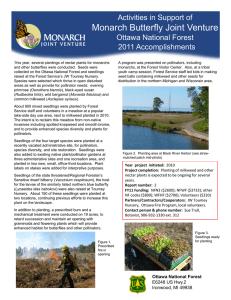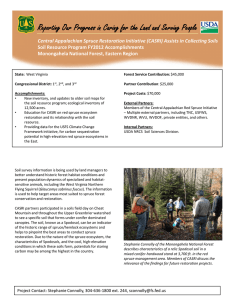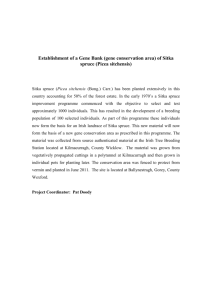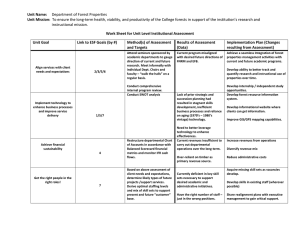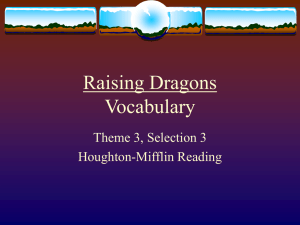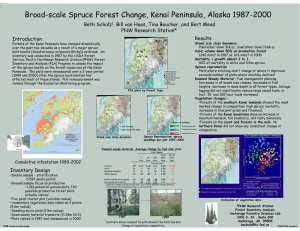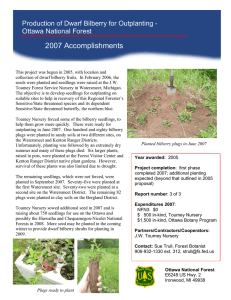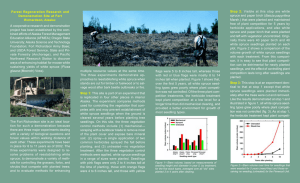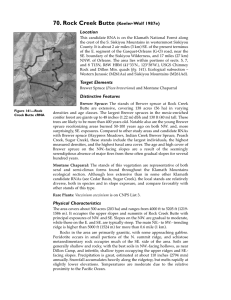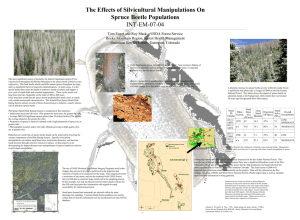About our Native Plant Activities … Mower Tract Lambert North Restoration &
advertisement
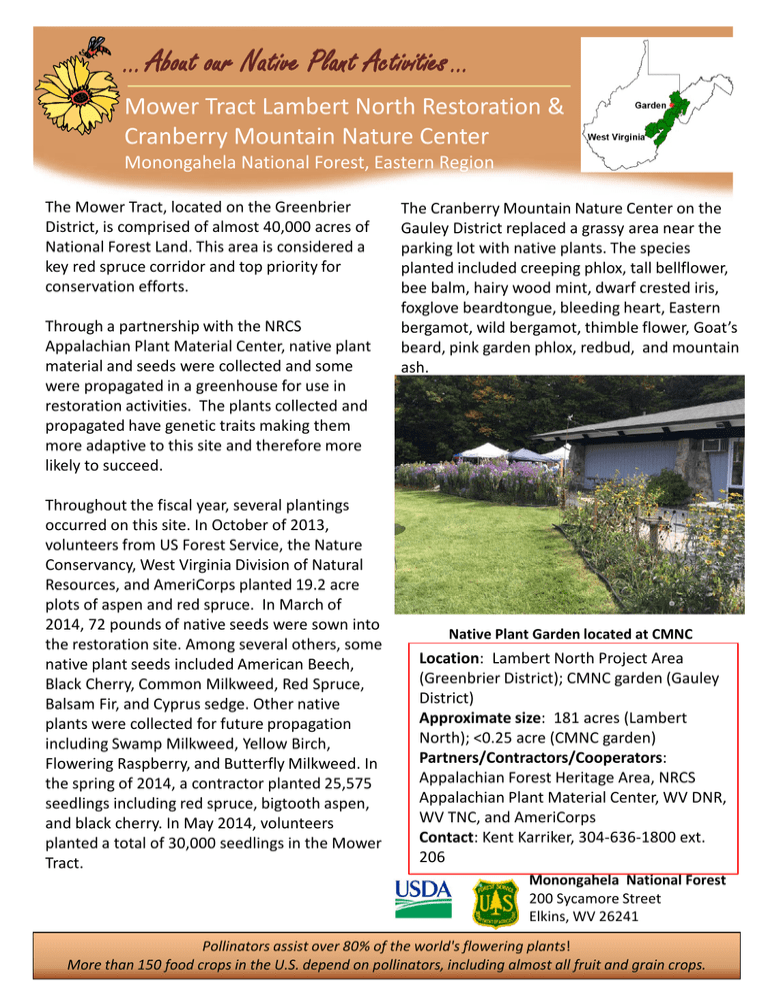
… About our Native Plant Activities … Mower Tract Lambert North Restoration & Cranberry Mountain Nature Center Monongahela National Forest, Eastern Region The Mower Tract, located on the Greenbrier District, is comprised of almost 40,000 acres of National Forest Land. This area is considered a key red spruce corridor and top priority for conservation efforts. Through a partnership with the NRCS Appalachian Plant Material Center, native plant material and seeds were collected and some were propagated in a greenhouse for use in restoration activities. The plants collected and propagated have genetic traits making them more adaptive to this site and therefore more likely to succeed. Throughout the fiscal year, several plantings occurred on this site. In October of 2013, volunteers from US Forest Service, the Nature Conservancy, West Virginia Division of Natural Resources, and AmeriCorps planted 19.2 acre plots of aspen and red spruce. In March of 2014, 72 pounds of native seeds were sown into the restoration site. Among several others, some native plant seeds included American Beech, Black Cherry, Common Milkweed, Red Spruce, Balsam Fir, and Cyprus sedge. Other native plants were collected for future propagation including Swamp Milkweed, Yellow Birch, Flowering Raspberry, and Butterfly Milkweed. In the spring of 2014, a contractor planted 25,575 seedlings including red spruce, bigtooth aspen, and black cherry. In May 2014, volunteers planted a total of 30,000 seedlings in the Mower Tract. The Cranberry Mountain Nature Center on the Gauley District replaced a grassy area near the parking lot with native plants. The species planted included creeping phlox, tall bellflower, bee balm, hairy wood mint, dwarf crested iris, foxglove beardtongue, bleeding heart, Eastern bergamot, wild bergamot, thimble flower, Goat’s beard, pink garden phlox, redbud, and mountain ash. Native Plant Garden located at CMNC Location: Lambert North Project Area (Greenbrier District); CMNC garden (Gauley District) Approximate size: 181 acres (Lambert North); <0.25 acre (CMNC garden) Partners/Contractors/Cooperators: Appalachian Forest Heritage Area, NRCS Appalachian Plant Material Center, WV DNR, WV TNC, and AmeriCorps Contact: Kent Karriker, 304-636-1800 ext. 206 Monongahela National Forest 200 Sycamore Street Elkins, WV 26241 Pollinators assist over 80% of the world's flowering plants! More than 150 food crops in the U.S. depend on pollinators, including almost all fruit and grain crops.
